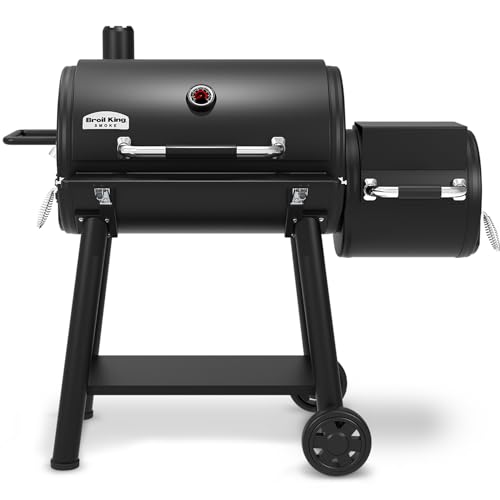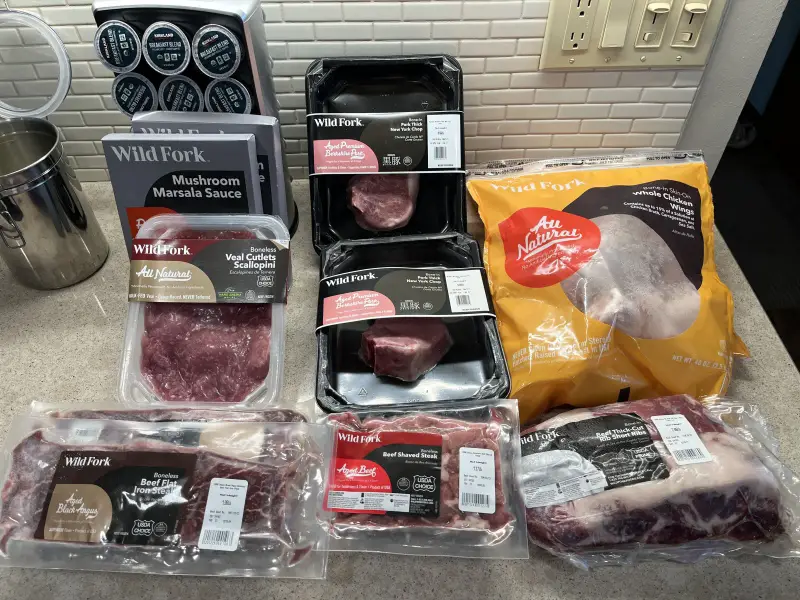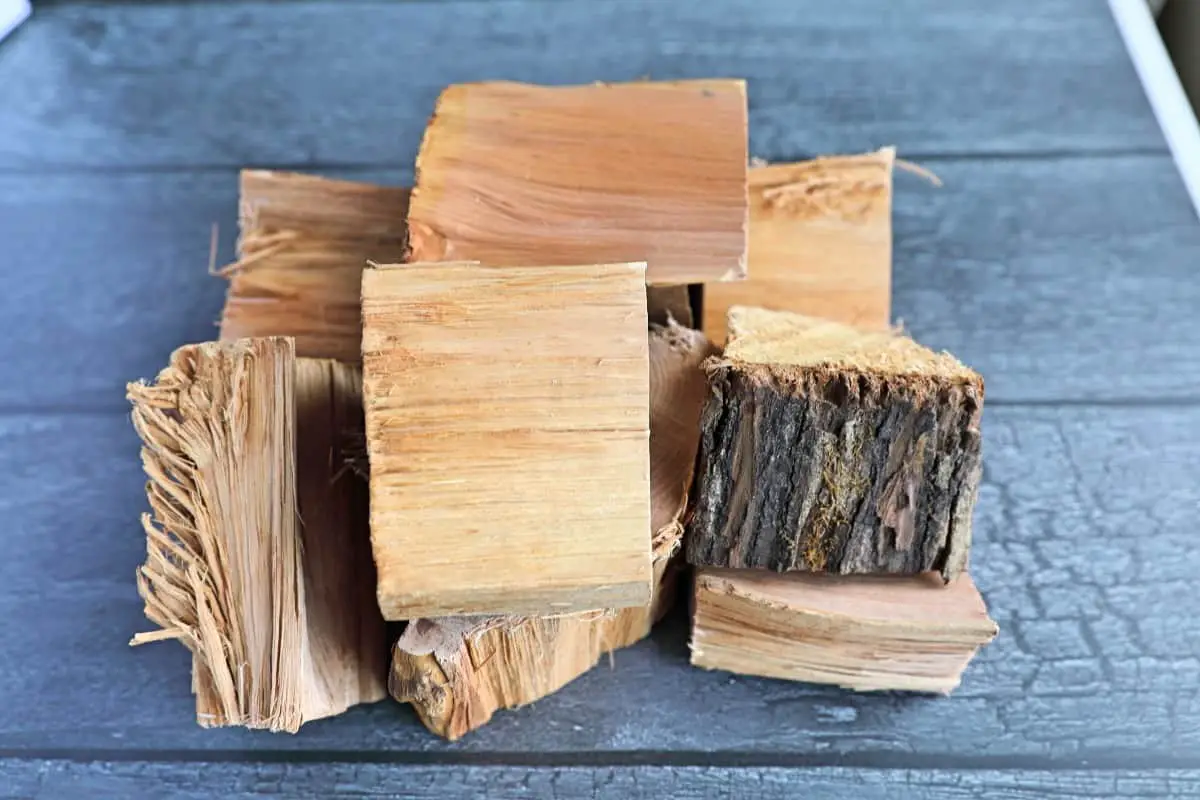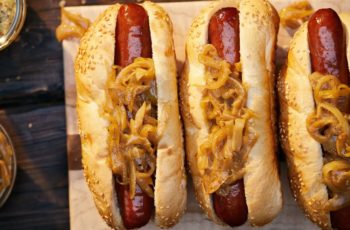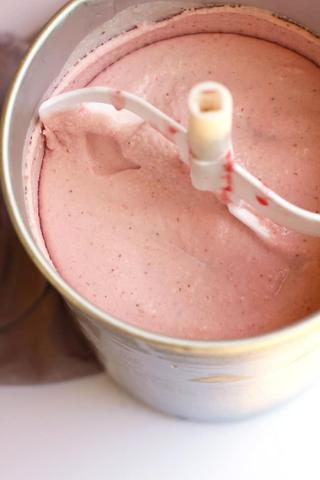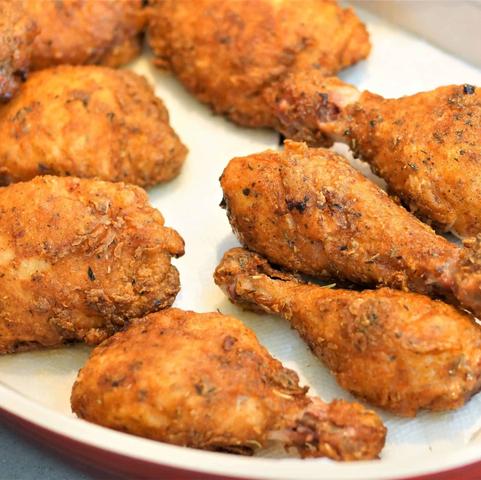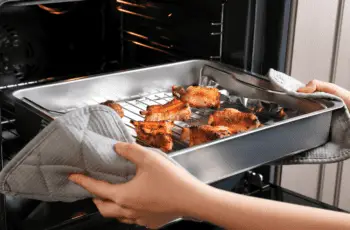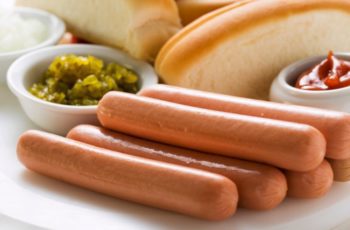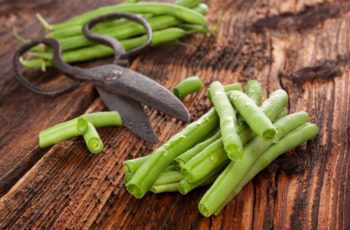
Do you like to eat your green beans raw? You might be surprised to learn that many people do. In fact, some people think that they taste better when they are enjoyed in their natural state. If you are curious about whether or not it is safe to eat green beans raw, keep reading. We will explore the benefits and risks of eating them this way.

What is a green bean?
Green beans are a type of vegetable that is picked and consumed while the bean is still young and tender. They can be eaten raw or cooked, and are often used in salads, stir-fries, and as a side dish. Green beans are a good source of vitamins A, C, and K, as well as manganese and dietary fiber.
Can You Eat Green Beans Raw? Are Raw Green Beans Safe to Eat?
Green beans — also known as string beans, snap beans, French beans, emotes, or haricots verts — are a thin, crunchy veggie with small seeds inside a pod. They’re common on salads or in dishes of their own, and some people even eat them raw.
Like most beans, raw green beans contain lectins. Lectins are a type of protein that can bind to cell membranes and cause them to rupture. This can lead to digestive issues like nausea, vomiting, and diarrhea. Lectins can also cause inflammation and damage the lining of the gut, which can lead to the leaky gut syndrome.
So, are raw green beans safe to eat?
It depends, it’s safe to consume a small number of green beans and it’s best to avoid eating raw green beans in large quantities.
If you must eat them, cook them first to reduce the lectin content.
Cooking green beans will also make them more digestible and help to preserve their nutrients. Vitamin C is particularly sensitive to heat, so cooking green beans may decrease their vitamin C content by up to 50%.

Raw vs. cooked?
There are benefits to both eating raw and cooked green beans. Here are some of the pros and cons:
Raw green beans:
Pros:
– retain more vitamins and minerals, including vitamin C, folate, and potassium
– are a good source of fiber
– have a crunchy texture that some people enjoy
Cons:
– may contain harmful compounds like lectins
– can be difficult to digest
– may not be as nutrient-dense as cooked green beans
Cooked green beans:
Pros:
– easier to digest
– more nutrient-dense due to the loss of water-soluble vitamins during cooking
– can be enjoyed in a variety of ways (boiled, steamed, sautéed, etc.)
Cons:
– may have a softer texture that some people don’t enjoy
– may lose some of their vitamins and minerals during cooking
Tips for eating raw green beans
If you decide to give raw green beans a try, there are a few things you can do to make them more enjoyable:
– Rinse them thoroughly to remove any dirt or impurities.
– Cut them into small pieces so they’re easier to chew and digest.
– Add them to a salad or mix them with other raw veggies for a crunchy snack.
– Dip them in hummus or another type of dipping sauce for extra flavor.
– Soak them in water for a few hours to soften them before eating.
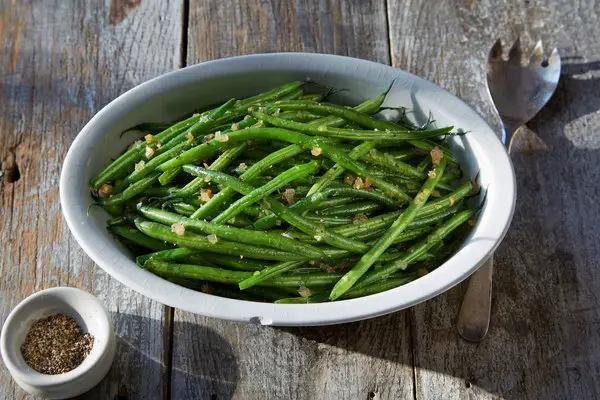
How to prepare green beans?
If you want to cook green beans, there are a few different ways that you can do so. You can boil them, steam them, sauté them, or roast them.
Boiling: Boil green beans in water for 3-5 minutes.
Steaming: Place green beans in a steamer basket over boiling water. Cover and steam for 3-5 minutes.
Sautéing: Heat olive oil or butter in a skillet over medium heat. Add green beans and cook for 5-7 minutes.
Roasting: Preheat the oven to 375 degrees Fahrenheit. Toss green beans with olive oil or butter and roast for 10-15 minutes.
FAQs
Can you lose weight by eating green beans?
Green beans are a low-calorie food that can be a part of a weight-loss diet. They are rich in fiber and nutrients, which may help you lose weight by keeping you full and satisfied. Additionally, green beans are a good source of protein, which is essential for weight loss.
Can green beans make you poop?
Green beans contain soluble and insoluble fiber, both of which can help with bowel movements. Soluble fiber dissolves in water and forms a gel-like substance, while insoluble fiber does not dissolve in water. Insoluble fiber helps add bulk to stool, while soluble fiber helps soften stool. Therefore, eating green beans may help relieve constipation and promote regularity.

Can You Eat Canned Green Beans Raw?
Canned green beans are safe to eat raw. However, it is important to rinse them thoroughly to remove any dirt or impurities. Additionally, it’s best to cut canned green beans into small pieces before eating them raw so they’re easier to chew and digest.
Are frozen green beans good for you?
Frozen green beans are a healthy and convenient option. They are just as nutritious as fresh green beans and can be cooked in a variety of ways. Additionally, frozen green beans tend to be more affordable than fresh green beans.
Can You Eat Raw Green Beans While Pregnant?
Raw green beans are safe to eat during pregnancy. However, it’s important to rinse them thoroughly to remove any dirt or impurities. Additionally, it’s best to cut raw green beans into small pieces before eating them so they’re easier to chew and digest. If you have any concerns, speak with your healthcare provider.
Are green beans a carb?
Green beans are considered a complex carbohydrate. They are a good source of fiber and nutrients and can be part of a healthy diet. Additionally, green beans have a lower glycemic index than other types of carbs, which means they don’t cause spikes in blood sugar levels.
Are green beans toxic?
Green beans are not toxic. However, it’s important to rinse them thoroughly to remove any dirt or impurities. Additionally, it’s best to cut green beans into small pieces before eating them so they’re easier to chew and digest. If you have any concerns, speak with your healthcare provider.
What are the side effects of eating too many green beans?
Eating too many green beans is unlikely to cause any serious side effects. However, consuming large amounts of green beans may lead to gas and bloating. Additionally, green beans contain oxalates, which can contribute to kidney stones in some people. If you have any concerns, speak with your healthcare provider.
What beans are dangerous to eat raw?
There are a few types of beans that are dangerous to eat raw. These include kidney beans, black beans, and navy beans. Kidney beans contain a toxin that is destroyed by cooking. Black beans and navy beans also contain a toxin that can be destroyed by cooking. However, this toxin can also be removed by soaking the beans in water for at least 5 hours before cooking them.
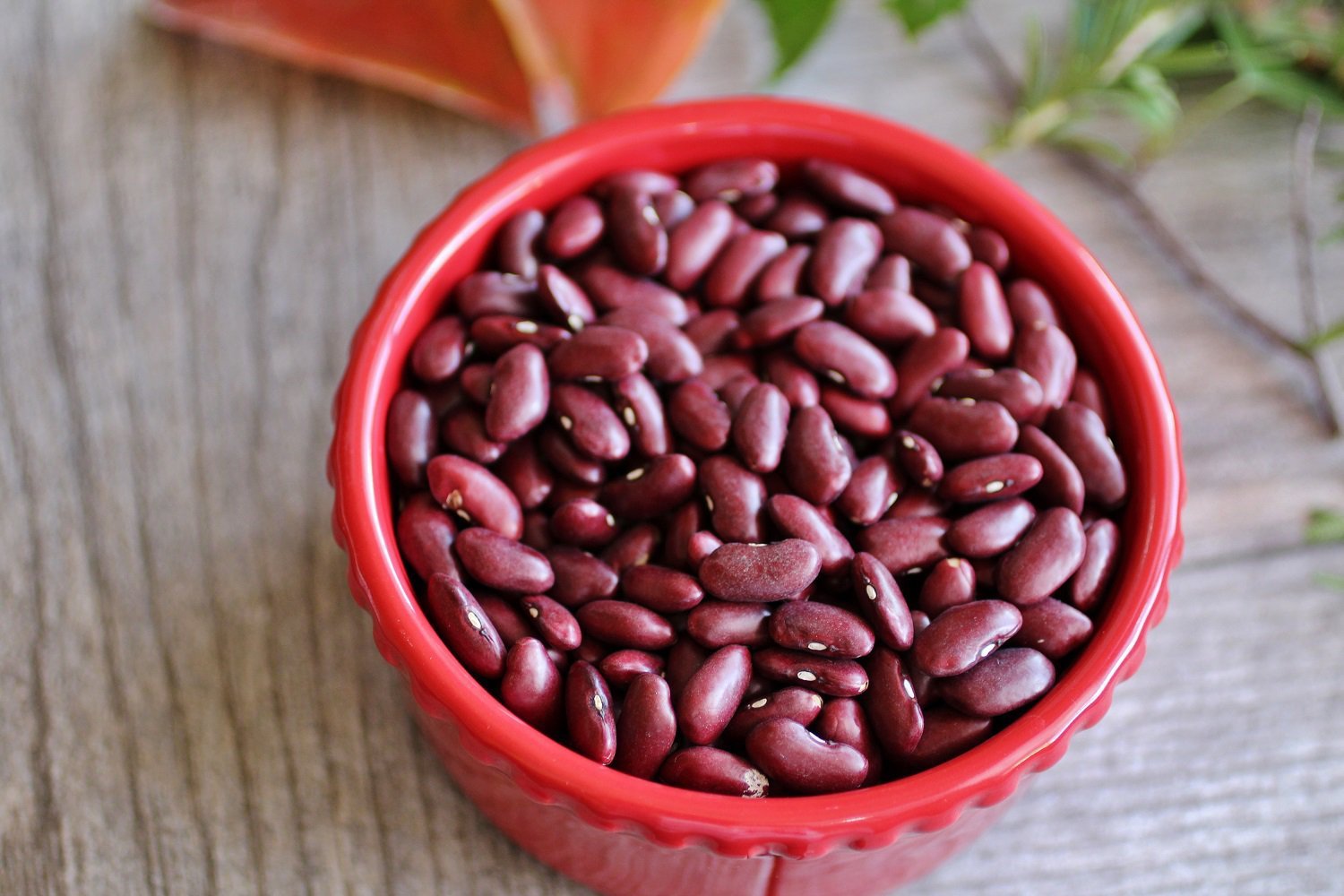
What vegetables can you not eat raw?
There are a few types of vegetables that are not recommended to be eaten raw. These include broccoli, cabbage, and Brussels sprouts. Broccoli and cabbage contain a substance that can be released when these vegetables are cut or chewed. This substance can cause stomach upsets. Brussels sprouts also contain a substance that can be released when they are cut or chewed. This substance can also cause stomach upsets. Additionally, all three of these vegetables are goitrogens, which means they can interfere with thyroid function. It’s best to cook these vegetables to reduce their goitrogenic potential.
Why are my beans still hard after cooking?
There are a few reasons why your beans might still be hard after cooking. One reason is that the beans were not cooked long enough. Another reason is that the beans were not soaked before cooking. Beans should be soaked for at least 5 hours before cooking to help soften them. Additionally, some types of beans are just naturally harder than others. For example, kidney beans and black beans are typically harder than other types of beans.
Can you eat green garbanzo beans raw?
Green garbanzo beans, also known as chickpeas, are safe to eat raw. However, it’s important to rinse them thoroughly to remove any dirt or impurities. Additionally, it’s best to soak green garbanzo beans in water for at least 5 hours before eating them to help soften them. If you have any concerns, speak with your healthcare provider.
Can you eat raw green beans in a salad?
Yes, you can eat raw green beans in a salad. However, it’s important to rinse them thoroughly to remove any dirt or impurities. Additionally, it’s best to cut green beans into small pieces before adding them to your salad so they’re easier to chew and digest. If you have any concerns, speak with your healthcare provider.
Conclusion
Green beans are safe to consume raw in small amounts but you should avoid eating them too much as it might cause some side effects like gas, bloating, or even kidney stones. You should also cut them into small pieces before consuming them and make sure to rinse them thoroughly. Some beans are dangerous to eat raw and these include kidney beans, black beans, and navy beans. It’s best to cook these types of beans before consuming them. Lastly, if your beans are still hard after cooking, it might be due to a few different reasons such as not cooking them long enough or not soaking them beforehand.
Learn More About Grilling
If you want to learn more about grilling, check out these other helpful resources!

